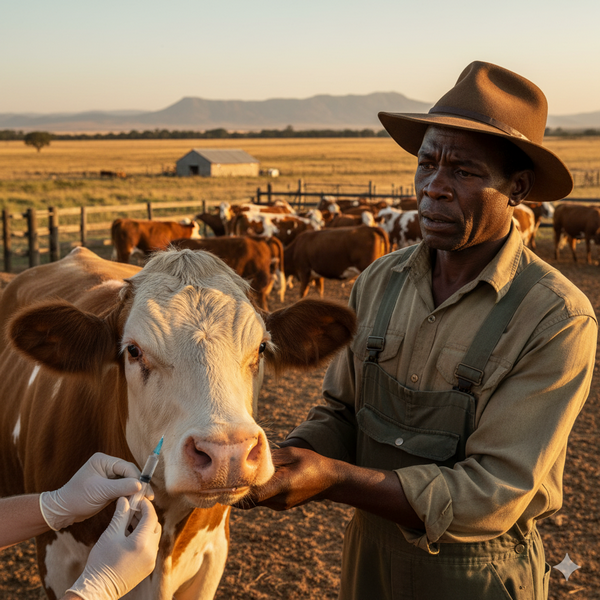South Africa’s agricultural sector breathes a collective, albeit cautious, sigh of relief as another significant consignment of Foot-and-Mouth Disease (FMD) vaccine doses, approximately 700,000 strong, makes its way from Botswana. This latest shipment, following the 900,000 doses secured earlier this financial year, is a testament to vital regional cooperation and an immediate lifeline for the nation’s beleaguered red meat industry. Yet, behind the scenes of this crucial import lies a stark reality: these vaccines, while indispensable, are merely a temporary bandage on a festering wound that costs the country an estimated R4 billion annually and severely jeopardises its national food security and export markets.
The Immediate Lifeline: Botswana’s Indispensable Role
The urgency of these vaccine shipments cannot be overstated. With 274 unresolved FMD outbreaks across five provinces, South Africa’s FMD-free status, and consequently its access to lucrative international markets like China, remains suspended. The Botswana Vaccine Institute (BVI) stands as the only reliable manufacturer of the specific Southern African Territories (SAT) FMD strains needed. The swift delivery of these doses, coordinated by the Department of Agriculture and industry partners like the Red Meat Industry Service (RMIS), highlights Botswana’s critical role as an African ally. The R72 million spent on the previous 900,000 doses alone underscores the financial strain, but it’s a cost deemed necessary to protect the livelihoods of thousands of farmers and the integrity of the livestock sector.
The Deeper Rot: A R4 Billion Economic Bleed
Despite the heroics of vaccine procurement, the FMD crisis is a stark symptom of deeper, systemic issues. Minister of Agriculture John Steenhuisen has repeatedly emphasised that the true cost extends far beyond vaccine invoices. The R4 billion annual loss stems from eradicated animals, restricted movement of livestock, decreased trade, disrupted value chains, and the immense logistical burden of managing outbreaks. This economic haemorrhage disproportionately affects emerging farmers who often lack the resources to withstand prolonged disruptions. It’s a crisis that hits the national fiscus, rural employment, and South Africa’s global agricultural standing.
Addressing Biosecurity Failures
While vaccines are crucial, they are not a silver bullet. Experts and the Minister alike point to the persistent challenge of illegal animal movements and porous biosecurity protocols as the primary drivers of FMD spread. A culture of non-compliance, particularly in communal grazing areas and unregulated auctions, continually undermines vaccination efforts. The arrival of millions of doses means little if animals are moved across disease control lines without proper permits, reintroducing the virus to previously contained areas. This necessitates a renewed focus on farmer education, stricter enforcement of livestock identification and traceability systems, and greater accountability at all levels of the value chain.
The Long-Term Prescription
The solution, as articulated by Minister Steenhuisen, lies in national self-sufficiency. Recognising the FMD threat as an issue of “national security importance,” the government, in partnership with industry, is fast-tracking the establishment of a mid-scale domestic FMD vaccine production facility, with a target commissioning date of March 2026. This ambitious project aims to drastically reduce reliance on imports, ensure a consistent supply of tailored vaccines, and safeguard the country’s livestock industry from future shocks.
The current reliance on Botswana, while exemplary of regional solidarity, serves as a powerful reminder of South Africa’s vulnerability. The incoming 700,000 doses offer much-needed relief and a chance to further suppress outbreaks. However, until South Africa can reliably produce its own vaccines and enforce stringent biosecurity measures across all provinces, these vital imports will remain a temporary fix for a problem that continues to cripple its economy and challenge its agricultural future. The true solution is a holistic strategy that moves beyond simply injecting cattle, but rather inoculates the entire system against disease.
